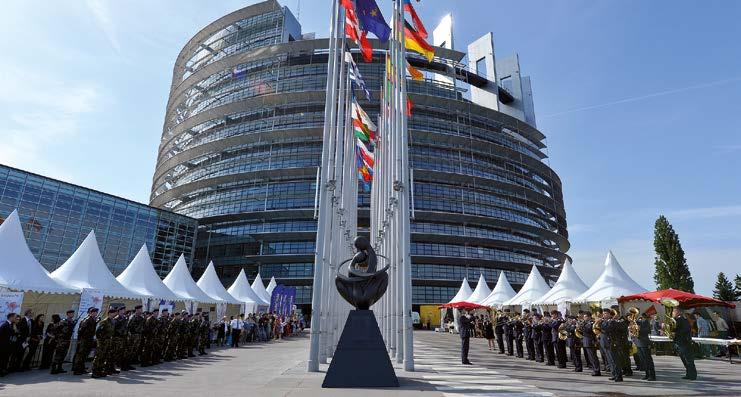THE EUROPEAN – SECURITY AND DEFENCE UNION
We can no longer claim that “we did not know”
How to offer a decent life to refugees
by Andrea Quaden, Humanitarian aid worker in Iraq
I
t started in 2011 with peaceful demonstrations demanding change, then developing into one of the worst wars of our time, forcing millions of Syrians to flee their homes. By 2014, over 6 million Syrians were displaced, 2.8 million of which fled to Turkey. I could not watch the humanitarian crisis unfold without doing anything. I moved to Turkey because I wanted to understand firsthand the plight of the Syrian people who were forced to experience the horrors of war and flee their homes. I also wanted to actively assist those refugees.
There is no line between them and us Sympathy alone is never enough. My mission in Turkey would also, eventually, help me return to Europe and shape a more humane and forward-looking refugee and migration policy. I would have never imagined that I would observe from afar how much my home – the European Union – struggles to defend its core values and norms of humanity, equality and the rule of law when it comes to supporting the most vulnerable amongst us. Never would I have predicted that we would rather close our borders and turn a blind eye to the suffering of people at our doorstep seeking protection and dignity. But we did, we all witnessed Alan Kurdi who drowned on a beach and all the other nameless souls…. The fate of others remains a headline in a newspaper, a tweet
38
– numbers, words, pictures – until you are in the midst of an unfolding humanitarian crisis, or just simply sharing a meal with your colleagues and friends who are themselves refugees or internally displaced. All of a sudden there is no line between “them” and “us”; humanity prevails.
From Turkey… My objective in Turkey was to support Syrians who were forced to flee their country. The majority of refugees, across South East Turkey, did not live in camps, but in cities like Gaziantep, Kilis or Mardin. Unfortunately, people soon realised that the war in Syria would take years and they would not be able to return. Turkey struggled to provide the necessary services for the “guests”, as the Syrians were called, and heavily relied on assistance from the international community. Despite everyone’s efforts, hundreds of thousands of people struggled. Families lived in ruins, children were unable to go to school, work permits difficult to obtain. Resentment against refugees grew within Turkish society and social cohesion started to falter. Most refugees wanted to stay in Turkey in the hope of one day returning to Syria, but years passed and war continues on. This long wait and the uncertainty of the future of their children drove Syrians towards Europe. Thousands embarked on the perilous journey, and many died trying. It caught us by surprise. It shouldn’t have!

















